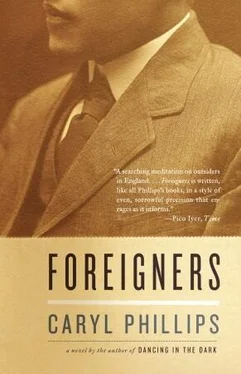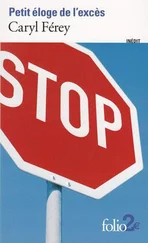The trial concerning the death of David Oluwale took place in November 1971. It opened on 11 November and lasted thirteen days, concluding on 24 November. The judge was Mr Justice Hinchcliffe (seventy-one). Prosecuting for the Crown was Mr John Cobb (forty-eight) and the barristers for the two defendants were Mr Gilbert Gray (forty-three) representing former Inspector Ellerker, and Mr Basil Widoger (fifty) representing Sergeant Kitching. The jurors included two women and one coloured man. The first defendant, Sergeant Kenneth Mark Kitching (forty-nine) of Blakeney Grove, Hunslet, was born in 1922. Sergeant Kitching had joined the police force in August 1950. He was married, but without children. He was described as an 'old time' sergeant who was proud of the fact that he chose to wear a helmet as opposed to a peaked cap. He stuck to a regular routine, which usually involved rising at lunchtime, having a few pints of beer in a 'police' pub, returning home for a meal and some sleep before reporting to Millgarth Station for the night shift. He was known to be Ellerker's right-hand man and confidant. His co-defendant was former Inspector Geoffrey Ellerker (thirty-eight) of Church Lane, Horsforth. Born in 1933, former Inspector Ellerker had joined the police force in December 1956. He was married with two children, a boy and a girl. He was made a sergeant in 1964, but in April 1968 he was promoted to uniformed inspector and put in charge of the night shift at Millgarth Station, overseeing the south section of the city centre. Between 10 p.m. and 6 a.m. he was the highest-ranking officer on duty, but he harboured a well-known ambition to be a non-uniform inspector and was somewhat frustrated in his career. Both men were, at the time of the alleged crime, serving in the A Division of the Leeds City Police Force. Both men were charged with the manslaughter of David Oluwale. At the time that the charges were brought in April 1971, Geoffrey Ellerker was in Lincoln jail. In December 1969 a seventytwo-year-old lady was knocked down and killed by a car that was driven by a superintendent of police. Ellerker attempted to cover up for his fellow officer, claiming that he could smell alcohol on the breath of the victim. It later transpired that the victim was teetotal. Ellerker was found guilty of misconduct as an officer of justice and he received a nine-month prison term. Already discredited as a former police officer, the David Oluwale case would thrust Ellerker, together with the middle-aged sergeant, back into the limelight for it was claimed that the pair of them had 'hounded and tormented' Oluwale before he drowned in April 1969. They enjoyed, what they called, 'tickling' the Nigerian vagrant with their boots, and on one occasion it was alleged that Oluwale was actually lifted off the ground, within the confines of Millgarth Station, when Ellerker kicked him hard between the legs. It was claimed that such incidents were habitual pastimes for the two officers who made it their business to terrorise a defenceless man. The case had come to light because a little over a year after the death of David Oluwale in April 1969, an eighteen-year-old police cadet, Gareth Galvin, overheard rumours of what had really happened to the Nigerian vagrant. He informed his sergeant at the cadet training school, who in turn passed on young Gareth Galvin's concerns to his own superiors. Eventually police headquarters at Scotland Yard in London became involved and the 'Oluwale Squad' was set up on the third floor of Leeds' Westgate Police Station. The squad was established with great secrecy, and under very tight security, with the investigation being led by Detective Chief Superintendent James Fryer and Detective Chief Inspector Len Shakeshaft, both of Leeds Criminal Investigation Department. They set about interviewing every policeman and woman, and every traffic warden in Leeds; in the end they interviewed 1,170 men and women, including Kitching and Ellerker. During interrogation, Kitching denied giving anything other than the odd slap to David Oluwale, but he went on and said, 'I can only describe him [Oluwale] as a wild animal, not a human being.' As the concerns of the 'Oluwale Squad' deepened a new post-mortem was ordered. A Home Office pathologist travelled from London to Leeds, and it was shortly after he had completed his work that Sergeant Kitching and former Inspector Ellerker were charged with manslaughter.
At the trial the defendants' lawyers sought to 'characterise' David Oluwale. They presented him to the jury as a man born in Lagos, Nigeria, in 1930 as a member of the Yoruba tribe. He was, according to them, possibly a fisherman. He had stowed away to England in 1949 and arrived as an illegal teenage immigrant in Hull. He was sentenced to twenty-eight days in jail for this crime, and he began his sentence at Armley jail on 3 September, 1949. As far as the defence was concerned, Oluwale was 'not quite educationally subnormal', but he was certainly not 'bright'. Variously known to the police as 'Ollie', 'Ali', 'Uggi', or 'Lone Duckie', he was a loner with not many friends. His mental health problems allegedly began in 1953, and he entered High Royds Hospital in Menston where he was a patient for the next eight years. The defence called Dr Richard Corty, who was the consulting psychiatrist at High Royds. The doctor stated that, 'at times [Oluwale was] completely withdrawn and inaccessible and on other occasions aggressive, noisy, violent, and disturbed. . He was hallucinating — he saw animals, lions with fish's heads and said these animals were going to kill and eat him. . He bit people, spat, but his condition gradually improved so that he was no longer giggling and talking to himself in a confused or childish manner. Originally he would defecate and urinate in the ward. He had two jobs but lost them through fighting and stealing.' The defence then called a staff nurse, a Mr Eric Dent, who described Oluwale as 'built like a miniature Mr Universe and [he] could take more punishment than Cassius Clay'. Mr Dent went on to assert that Oluwale was 'like a savage animal'.
The defence claimed that during his twenty years in England, Oluwale had been imprisoned on numerous occasions for assault on police, disorderly conduct, and 'walking abroad'. He had often been picked up under Section 4 of the Vagrancy Act, 1824, which empowered the police with the right to stop anyone they suspected of committing an offence. According to the police, Oluwale had often been violent to those who had crossed his path, and he habitually used newspapers for sheets and a duffel bag for a pillow. He was no more than a 'dosser' who didn't work, and he was not acceptable as an inmate of a hostel. All Ellerker and Kitching wanted was a 'clean city' and, with this in mind, Oluwale was a problem. The defence argued that this was a man who drew social security payments so that he might simply spend them on alcohol. According to former Inspector Ellerker, 'Oluwale was a small, chunky man, filthy in his personal habits. He was not the sort of man one wanted to grapple with too long or too close. . His language was dirty, and he was fluent in the use of four-letter words. . when Oluwale became excited he would set up a highpitched screaming noise — although nothing was happening to him. He would scream and shout before being spoken to.' Chief Superintendent Leonard Barker appeared for the defence and reminded the court that Sergeant Kitching had recently been presented with a Humane Society Award for rescuing a man who had fallen into the River Aire.
The prosecution presented a somewhat different version of events. They spoke of the continued harassment that Oluwale had been subjected to since arriving in England as a teenager, and how this harassment became more systematic and malicious between August 1968 and his death in April 1969. During this eight-month period David Oluwale was relentlessly hounded by Sergeant Kitching and former Inspector Ellerker. On 27 September, 1968, David was jailed for six months for alleged assault on the police and Sergeant Kitching told a colleague, Police Constable Yeager, that he could not wait for Oluwale to come out because 'there wasn't another one like him'. David was released from prison on 10 April, 1969 and eight days later, on the morning of 18 April, he drowned in the River Aire. The court was told that Sergeant Kitching and former Inspector Ellerker had made it clear that they did not want David Oluwale within the boundaries of the city of Leeds. Any sighting of David Oluwale was to be reported directly to them, and an officer was once reproved by them for dealing with Oluwale directly.
Читать дальше











![Unknown - [Carly Phillips] The Bachelor (The Chandler Brothe(Bookos.org) (1)](/books/174132/unknown-carly-phillips-the-bachelor-the-chandle-thumb.webp)
